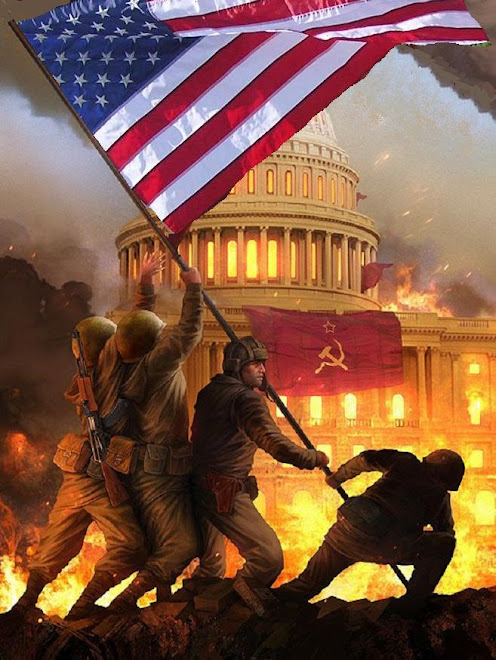I guess Bush and Obama didn't see this when they sent (wasted) billions of U.S. taxpayer dollars to Africa. Looks like the nations with the most Christians are the most honest. Who would of guessed? Just think if our congress was filled with Christians? I bet we could cut our Federal taxes in half and still have trillions left over.
This year again Nigeria is not listed amongst the most corrupt nations in the world having come 130th position out of 180 countries in the current assessment of Transparency International’s 2009 Corruption Perceptions Index (CPI), which is a measure of domestic, public sector corruption.
The new report was released today by Transparency International which is the global civil society organisation leading the fight against corruption.
Nigeria which scores 2.5 out of the maximum mark of 10 for the cleanest (non-corrupt) nations has beaten other countries for the worst position. In the list cleanest countries score between 8.7 to 9.4 over 10 point while the most corrupt one, a dozen of them score marks between 1.1 to 1.8 over 10 point.
The most corrupt nation that scored the lowest mark of 1.1 is Somali followed closely Afghanistan (1.3), Myanmar (1.4), Sudan (1.5), Iraq (1.5), Chad (1.6), Uzbekistan (1.7), Turkmenistan (1.8), Iran (1.8), Haiti (1.8), Guinea (1.8) and Equatorial Guinea(1.8) in that order. The 12 most corrupt nations are fragile, unstable states that are scarred by war and ongoing conflict linger at the bottom of the index. Countries which are perceived as the most corrupt are also those plagued by long-standing conflicts, which have torn apart their governance infrastructure.
The ten cleanest and less corrupt countries with highest marks in the Corruption Index are New Zealand that scores 9.4 followed by Denmark 9.3, Sweden 9.2, Switzerland 9.0, Finland 8.9, Netherlands 8.9, Australia 8.7, Canada 8.7, Iceland scoring 8.7 and Norway 8.6 over 10 maximum point. These scores of the highest scorers reflect political stability, long-established conflict of interest regulations and solid, functioning public institutions.
In a release by the TI, it disclosed that the vast majority of the 180 countries included in the 2009 index score below five on a scale from 0 (perceived to be highly corrupt) to 10 (perceived to have low levels of corruption). The CPI measures the perceived levels of public sector corruption in a given country and is a composite index, drawing on 13 different expert and business surveys. The 2009 edition scores 180 countries, the same number as the 2008 CPI.
The Chair of Transparency International (TI) Huguette Labelle emphasised on the importance of the index saying that: “At a time when massive stimulus packages, fast-track disbursements of public funds and attempts to secure peace are being implemented around the world, it is essential to identify where corruption blocks good governance and accountability, in order to break its corrosive cycle.”
Labelle warned that “Stemming corruption requires strong oversight by parliaments, a well performing judiciary, independent and properly resourced audit and anti-corruption agencies, vigorous law enforcement, transparency in public budgets, revenue and aid flows, as well as space for independent media and a vibrant civil society. The international community must find efficient ways to help war-torn countries to develop and sustain their own institutions.”
The report also stated that as the world economy begins to register a tentative recovery and some nations continue to wrestle with ongoing conflict and insecurity, it is clear that no region of the world is immune to the perils of corruption, according to Transparency International ’s 2009 Corruption Perceptions Index (CPI), a measure of domestic, public sector corruption released today.
Overall results in the 2009 index are of great concern because corruption continues to lurk where opacity rules, where institutions still need strengthening and where governments have not implemented anti-corruption legal frameworks.
Even industrialised countries cannot be complacent: the supply of bribery and the facilitation of corruption often involve businesses based in their countries. Financial secrecy jurisdictions, linked to many countries that top the CPI, severely undermine efforts to tackle corruption and recover stolen assets.
“Corrupt money must not find safe haven. It is time to put an end to excuses,” said Labelle. “The OECD’s work in this area is welcome, but there must be more bilateral treaties on information exchange to fully end the secrecy regime. At the same time, companies must cease operating in renegade financial centres.”
Bribery, cartels and other corrupt practices undermine competition and contribute to massive loss of resources for development in all countries, especially the poorest ones. Between 1990 and 2005, more than 283 private international cartels were exposed that cost consumers around the world an estimated US $300 billion in overcharges, as documented in a recent TI report.
With the vast majority of countries in the 2009 index scoring below five, the corruption challenge is undeniable. The Group of 20 has made strong commitments to ensure that integrity and transparency form the cornerstone of a newfound regulatory structure. As the G20 tackles financial sector and economic reforms, it is critical to address corruption as a substantial threat to a sustainable economic future. The G20 must also remain committed to gaining public support for essential reforms by making institutions such as the Financial Stability Board and decisions about investments in infrastructure, transparent and open to civil society input.
Globally and nationally, institutions of oversight and legal frameworks that are actually enforced, coupled with smarter, more effective regulation, will ensure lower levels of corruption. This will lead to a much needed increase of trust in public institutions, sustained economic growth and more effective development assistance. Most importantly, it will alleviate the enormous scale of human suffering in the countries that perform most poorly in the Corruption Perceptions Index.



No comments:
Post a Comment